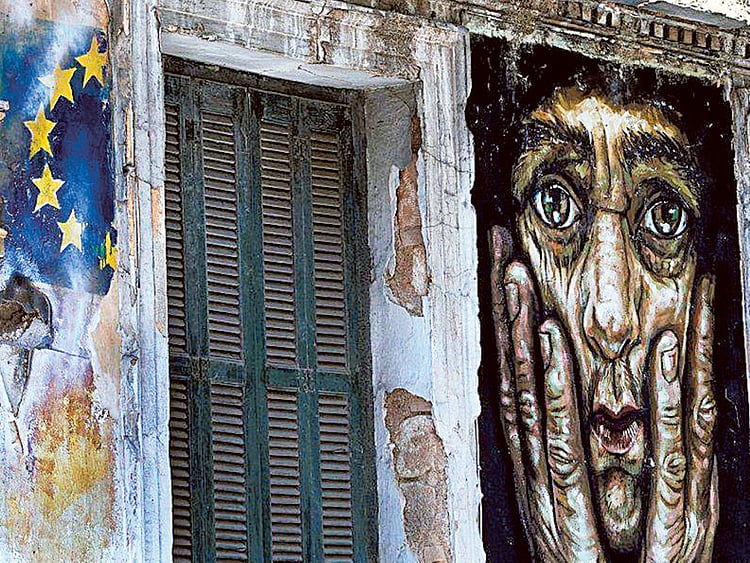#ThisIsACoup: Germany strongly criticised on social media as deal reached
The hashtag was home to tens of thousands of angry comments directed towards the EU

Dubai: Germany has faced an online backlash over the list of demands handed to the Greek government in return for a bailout to the current crisis. The backlash came hours before a deal had been agreed by the involved parties.
#ThisIsACoup was the second top trending hashtag on Twitter worldwide — and the top in both Germany and Greece. Reuters reported that the hashtag appeared on Sunday evening from Sandro Maccarrone, who describes himself as a physics teacher from Barcelona.
Maccarrone tweeted: “The Eurogroup proposal is a covert coup d’etat against the Greek people. #ThisIsACoup.”
“More than ever, ordinary people are turning to social media to make their voices heard. #ThisIsACoup is an example of how individuals can share their views and voice their feelings in unison with others in real time. Savvy politicians and governments need to be aware of these popular sentiments, and form policy accordingly,” said Alex Malouf, Vice Chair of the Middle East Public Relations Association (MEPRA).
The Hashtag centres around the idea that Germany’s negotiating terms aim to force the Greek Prime Minister Alexis Tsipras and his Syriza party to resign, as they were elected to fight more cuts. The hashtag was home to tens of thousands of angry comments directed towards the EU.
“PM Tsipras and Syriza party came to power with the promise to increase wages and reduce taxes [end austerity measures], but according to critics he did exactly the opposite with the agreement on Monday. However, he had no other choice. PM Tsipras was cornered and he had no other alternative but to accept, in order to stay in Euro. He had to decide on staying in the Euro and agree with the conditions, or Grexit and enter into unknown territory and endure a possibly bigger shock,” said Alp Eke, Senior Economist at the National Bank of Abu Dhabi.
Eke further quoted Tsipras as saying: “The agreement is difficult, but we averted the transfer of public property abroad, we averted a plan to cause a credit crunch and the new deal reached will save the banking system from collapse.”
“He faced furious reaction from both the media and Greek officials. It is not a deliberate move to remove Syriza from power. Without such reforms, there is no hope for Greece. The economic situation has gone from bad to worse. The bailouts have not helped so far, because the Greece government was slow or unwilling in implementing the conditions agreed upon for the previous attempts,” Eke said.
The humanitarian conditions have worsened in Greece due to the current economic crisis. At the moment unemployment rate is estimated to be 26 per cent. And youth unemployment is estimated to be around 51 per cent, according to official data.
Paul Krugman, the Nobel laureate economist, praised the hashtag on his New York Times blog: “The trending hashtag ThisIsACoup is exactly right,” he wrote. “This goes beyond harsh into pure vindictiveness, complete destruction of national sovereignty, and no hope of relief.”
The hashtag which remains somehow active, carried messages of anger towards the EU’s proposed terms.
“There is a challenge to social listening when it comes to online campaigns which develop from the grassroots up. Firstly, views are becoming increasingly polarised and extreme online. Look at how German politicians have been compared to the Nazis. Secondly, how do these social campaigns represent the views of the majority of the electorate or public? Needless to say, just as it has transformed the Middle East following the Arab Spring, social media is now shaping debate in Europe, in the heart of the world’s democracy,” MEPRA’s Malouf added.
— Omnia Ibrahim is a trainee at Gulf News
Sign up for the Daily Briefing
Get the latest news and updates straight to your inbox
Network Links
GN StoreDownload our app
© Al Nisr Publishing LLC 2026. All rights reserved.